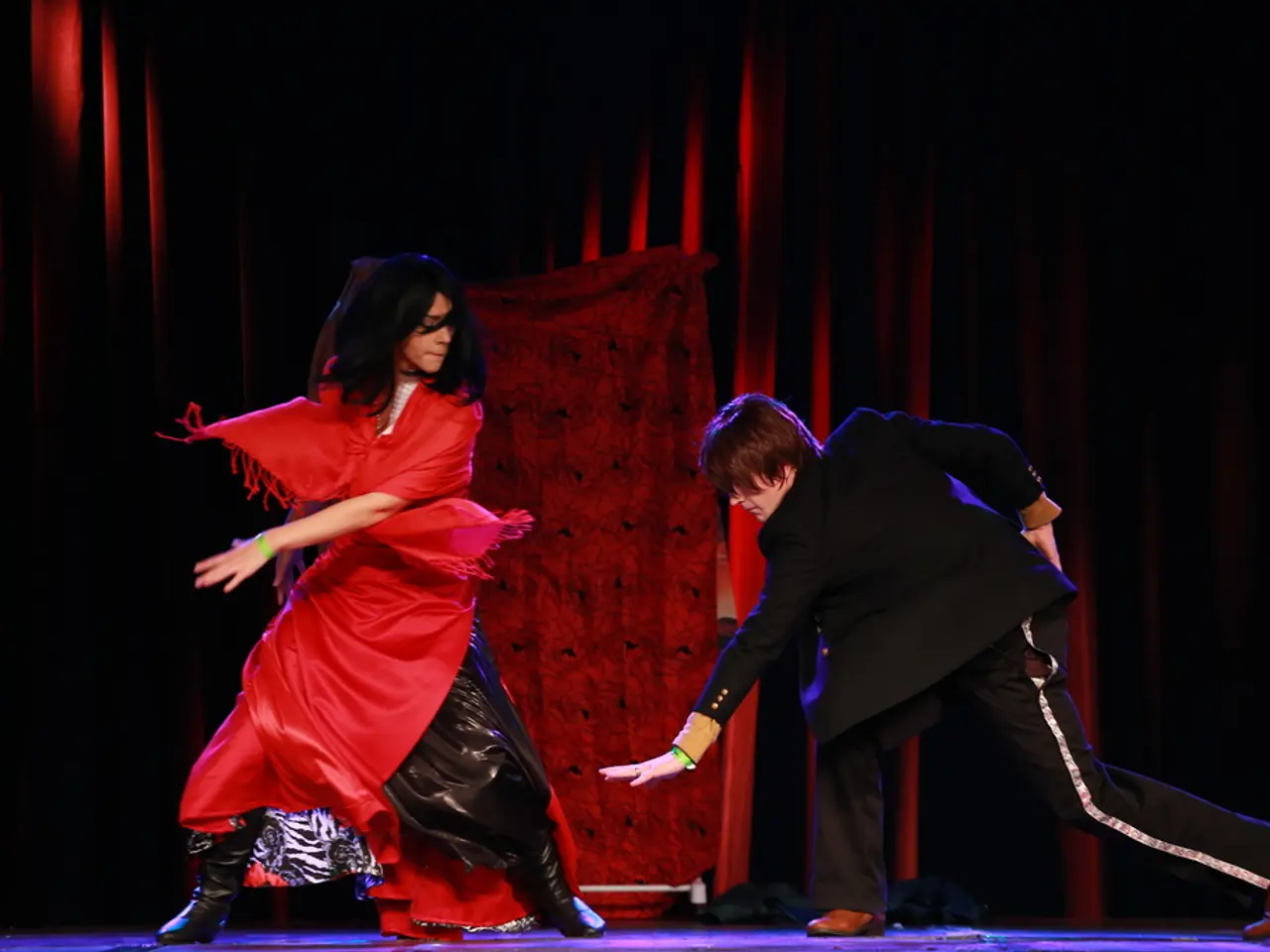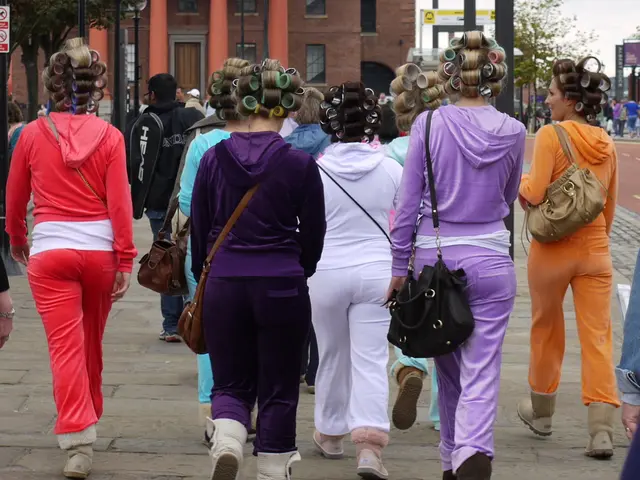Opera attire: what should I don when attending a highbrow performance?
=====================================================================
In the world of opera and theater, the focus is on the art and the performance, but the attire of the audience also plays a role in enhancing the overall experience.
According to Suzanne Harf, protocol chief at the Salzburg Festival, the dress code for opera and theater events is generally flexible, leaning towards elegant and polished attire. Harf emphasizes that the focus should be on the art, not the attire of the audience.
In the past, formal attire was the norm for opera events. However, times have changed, and contemporary events accommodate a broad range of elegant to smart-casual dress styles.
For opera, outfits like satin maxi skirts, sleeveless midi dresses, suits, or cocktail dresses are common and appropriate, reflecting elegance without requiring full black-tie formality. Theater audiences often wear smart casual or business casual outfits; comfort is also a priority given the length of performances.
At top venues like the Metropolitan Opera, there is no official dress code, and no one is turned away for casual wear. However, many patrons choose refined clothing to match the grandeur of the venue. Accessories like binoculars for higher seats at the opera are practical.
However, it's important to avoid overly casual attire such as ripped jeans, gym wear, or beachwear. Costumes or clothing that may be perceived as historically offensive, culturally inappropriate, or containing hate symbols are strictly taboo and not tolerated in theater settings. Harassment or inappropriate conduct is strongly condemned, with special attention to inclusive behavior regarding gender expression and identity. Offensive imagery or language on clothing is unacceptable, emphasizing respect for diverse audiences and performers.
Carl Tillessen, managing director of the German Fashion Institute (DMI), compares the importance of attire at successful opera evenings to legendary parties like Studio 54 and Berghain. Tillessen suggests finding a balance between elegance and comfort for a contemporary opera visit.
The Bayreuth Festival, known for its traditional attire, has also become more casual as the premier glamour fades. Men no longer have to wear ties, and women often wear summer dresses and ballerinas. The musicians in the pit at the Bayreuth Festival do not wear jackets or dark suits.
The Bavarian State Opera in Munich does not have an official dress code, encouraging guests to dress comfortably while also feeling special for the occasion. The Mailänder Scala opera house has tightened its dress code, banning shorts, flip-flops, and tank tops.
In summary, while formalwear is appreciated, contemporary opera and theater events accommodate a wide range of elegant to smart-casual dress styles. The emphasis is on respectfulness, comfort, and discretion to avoid offending others. Avoid casual or offensive attire, and dress to reflect the cultural significance of the event without strict formality demands. This balance encourages attendance from a wider audience while honoring tradition and the artistic experience.
Read also:
- Love, Work, and Friendship Harmonies between Aries Signs
- Black Female Politician Diane Abbott Faces Harsher Criticism and Increased Scrutiny Due to Her Race and Gender
- Netflix documentary uncovers identical pay rates between Dallas Cowboys Cheerleaders and Chick-fil-A employees
- Exploring the Rise of Camila Araujo: An Insight into the Life of an Emerging Talent








